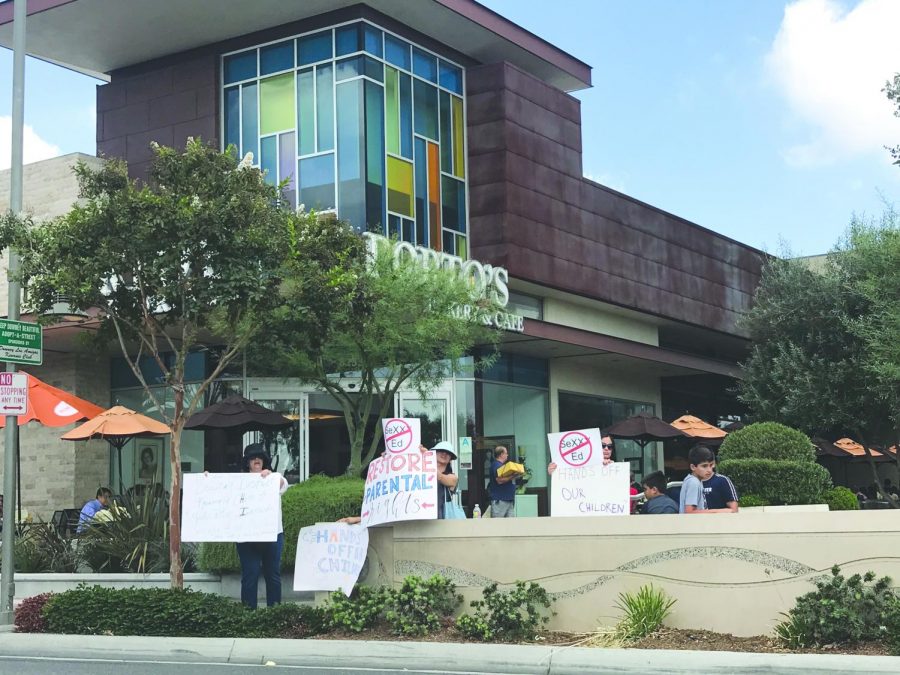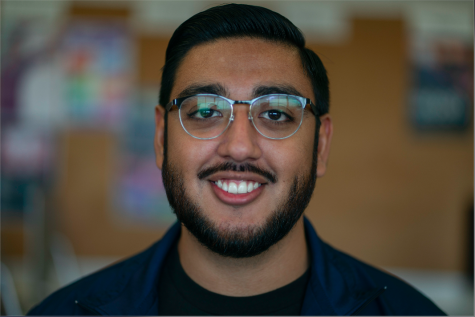About a dozen upset parents showed up with handmade posters outside a statewide politician’s office in Downey recently to protest a teen sexual education program that includes information about sexual orientation and HIV-prevention, among other things.
Some parents object to what they consider explicit information while others dislike that LGBTQ+ issues will be included.
The Downey Unified School District board approved the Teen Talk program on Sept. 9 to help the district comply with the California Healthy Youth Act, which took effect in 2016 and requires schools districts to teach students — at least once in middle school and once in high school — “comprehensive, accurate, and inclusive” information about sexual health and HIV prevention. It allows parents to opt their children out of the program if they are uncomfortable with it.
Queer rights advocates say inclusivity is needed in all areas of education, including sex education, to help prevent bullying and relay important information to students.
“Research indicates that when comprehensive and inclusive sex education is taught in schools, students feel safer and are more engaged,” said Rob Darrow, the director of professional learning for Santa Cruz County’s Safe Schools Project. Without that, LGBTQ+ students can feel left out and isolated, and lack information about the importance of having respectful, safe and loving relationships. For instance, a student on a panel he facilitated about one year ago asked, “If the school only teaches about sex between a man and a woman, where am I supposed to learn about sex between two men?”
Teen Talk covers making healthier decisions and choices on issues such as substance use awareness, mental health, issues of diversity, anti-violence, reproductive health, body image, and sexuality.
Some of the parents protesting outside Assemblymember Cristina Garcia’s office also showed up at the school district board meeting to protest.
About 10 to 15 parents were “crying out [and] begging the board not to approve such a promiscuous plan,” said Jorge Chakargi, a parent, who said he opposes the gender identity parts of the curriculum. “It goes against our own beliefs and the way they try to accomplish the sex education to the children is corrupt and is pornography.”
The state law aimed for inclusivity, according to information about it on California Department of Education’s website: “Instruction shall affirmatively recognize that people have different sexual orientations and, when discussing or providing examples of relationships and couples, must be inclusive of same-sex relationships.”
Parents say the law didn’t take individual families’ religious and personal beliefs into account.
“As parents, we want our rights back or we will pull our children from the school,” Sandra Padilla said in an interview.
Padilla said she is concerned about the possibilty of graphic content taught in the program because she noted that Teen Talk’s website includes information about “anal or oral sex and how to have it safely.”
The district hosted several informational meetings in May and provided parents with a presentation about Teen Talk in August that included the program’s goals and timeline, and a questionnaire, among other things.
“We really want parents to be a part of this by being transparent,” said Ashley Greaney the Public Relations Coordinator of Downey Unified School District, adding that Teen Talk provides age-appropriate and medically correct information. “The District has stated to parents they [can] opt out of the curriculum or certain sections if they would like to and fill the form as present on the presentation on the website…It is a touchy subject going beyond the classroom [affecting] religious beliefs”
She said parents will be notified multiple times before the deadline to opt out.
The district also plans to offer workshops to inform parents about what their children will learn in order to have better conversations, Greaney said.








